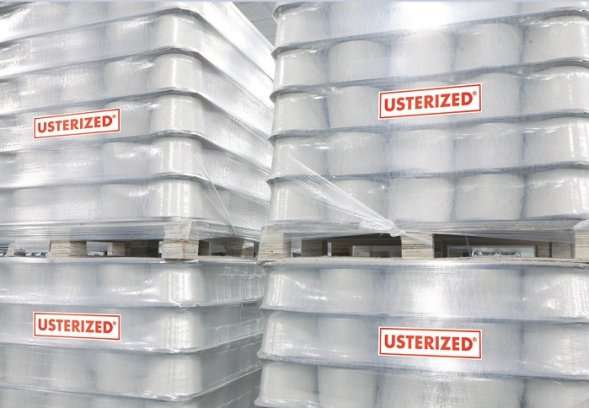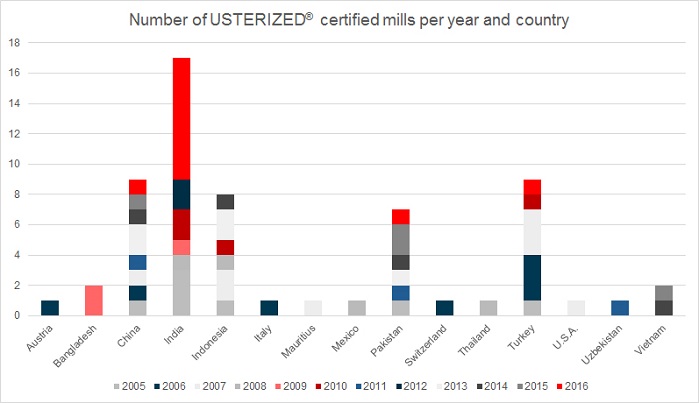
Uster focus on quality at ITM 2024
Today, there are 68 USTERIZED certified spinning mills worldwide, 21 of which have held the accreditation for 10 years or more.

12th January 2017
Innovation in Textiles
|
Uster
The USTERIZED brand, by Uster Group, a leading high-technology instrument manufacturer of products for quality measurement and certification for the textile industry, has recorded a growing demand for yarn quality testing, with nine spinning mills successfully passing the audit process in 2016.
The USTERIZED brand has been developed to create a global circle of excellence for spinning mills, certifying the top-level standards of quality management. Started in 1967 and expanded 10 years ago, the programme requires spinners to meet stringent technical specifications and implement efficient processes for quality yarn production.
Today, there are 68 USTERIZED certified spinning mills worldwide, 21 of which have held the accreditation for 10 years or more.
Recent trends confirm a growing demand for higher quality and at the same time consistent quality yarn from downstream users in the textile chain. The USTERIZED quality seal supports this by assuring that certified spinners are capable of meeting this requirement on a continuous basis.
A key aspect is the maintenance of consistent environmental conditions in the spinning mill laboratory, to ensure reliable measurement of quality values with Uster instruments for testing fibre and yarns. USTERIZED candidates must also focus on important details such as a regular sampling plan and the use of yarn quality profiles, as part of the quality management process. To demonstrate suitable customer-oriented systems, spinners will need to work with yarn quality profiles for selected articles, as well as produce test reports using Uster Statistics percentile values for their standard yarns.
The USTERIZED certificate must be renewed regularly. But, unlike some other programmes, this requires mills to do more than simply prove again their original quality management standards. At each subsequent audit, USTERIZED spinners need to show evidence of continuous improvements – which also includes updated testing and monitoring technology.
According to the manufacturer, the value that spinners place on their USTERIZED recognition is underlined by the efforts made by so many to pass the regular audits – in some cases for 10 years and longer. The count of long-term and new members at the end of 2016 showed that India now has the largest number of USTERIZED spinners.

Other strong USTERIZED markets are in China, Turkey, Indonesia and Pakistan. These spinners, and others worldwide, have earned the right for their yarn to carry the USTERIZED brand label – for instant recognition of quality consistency in trading and deliveries to fabric producers, the company reports.
Each candidate for membership has to undergo a detailed and extensive examination of its quality management systems. Comprehensive preparation is needed before starting an USTERIZED application. USTER provides support to the spinning mills throughout, with training courses and visits from specialists to support the mill, ahead of the USTERIZED certification audit.
To carry out the audit, experienced textile experts assess the mills’ quality management systems. They will recommend improvements in quality processes and consistency and guide spinners towards ongoing analysis routines. Customer feedback is that these audit procedures are a valuable service in themselves, providing deep insights into quality management and overall mill management needs.

Business intelligence for the fibre, textiles and apparel industries: technologies, innovations, markets, investments, trade policy, sourcing, strategy...
Find out more